From time to time, then, we are highlighting here the words of the Holy Father that particularly resonate with the “signs of the times”:
…the Church has always had the duty of scrutinizing the signs of the times and of interpreting them in the light of the Gospel. —Gaudium et Spes, On the Church in the Modern World, vatican.va
Preserve the Eastern Rites in this Diaspora (persecution)!
Highlights from Pope Leo XIV’s address to Vatican City Catholics from various Eastern rites, accompanied by their Patriarchs, Major Archbishops, and clergy, May 14, 2025 (Zenit).
You are precious in God’s eyes. Looking at you, I think of the diversity of your origins, your glorious history and the bitter sufferings that many of your communities have endured or continue to endure. I would like to reaffirm the conviction of Pope Francis that the Eastern Churches are to be “cherished and esteemed for the unique spiritual and sapiential traditions that they preserve, and for all that they have to say to us about the Christian life, synodality, and the liturgy. We think of early Fathers, the Councils, and monasticism… inestimable treasures for the Church (Address to Participants in the Meeting of Aid Agencies for the Oriental Churches [ROACO], 27 June 2024).
…I would also like to mention Pope Leo XIII, the first Pope to devote a specific document to the dignity of your Churches, inspired above all by the fact that, in his words, “the work of human redemption began in the East” (cf. Apostolic Letter Orientalium Dignitas, 30 November 1894). Truly, you have “a unique and privileged role as the original setting where the Church was born” (SAINT JOHN PAUL II, Orientale Lumen, 5). It is significant that several of your liturgies – which you are now solemnly celebrating in Rome in accordance with your various traditions – continue to use the language of the Lord Jesus. Indeed, Pope Leo XIII made a heartfelt appeal that the “legitimate variety of Eastern liturgy and discipline… may redound to the great honor and benefit of the Church” (Orientalium Dignitas). His desire remains ever timely. In our own day too, many of our Eastern brothers and sisters, including some of you, have been forced to flee their homelands because of war and persecution, instability and poverty, and risk losing not only their native lands, but also, when they reach the West, their religious identity. As a result, with the passing of generations, the priceless heritage of the Eastern Churches is being lost.
…Over a century ago, Leo XIII pointed out that “preserving the Eastern rites is more important than is generally realized”. He went so far as to decree that “any Latin-Rite missionary, whether a member of the secular or regular clergy, who by advice or support draws any Eastern-Rite Catholic to the Latin Rite” ought to be “dismissed and removed from his office” (ibid). We willingly reiterate this appeal to preserve and promote the Christian East, especially in the diaspora (ie. the dispersion or spread of people from their homeland, in this case, through persecution and war in the Middle East.)
…The Church needs you. The contribution that the Christian East can offer us today is immense! We have great need to recover the sense of mystery that remains alive in your liturgies, liturgies that engage the human person in his or her entirety, that sing of the beauty of salvation and evoke a sense of wonder at how God’s majesty embraces our human frailty! It is likewise important to rediscover, especially in the Christian West, a sense of the primacy of God, the importance of mystagogy and the values so typical of Eastern spirituality: constant intercession, penance, fasting, and weeping for one’s own sins and for those of all humanity (penthos)! It is vital, then, that you preserve your traditions without attenuating them, for the sake perhaps of practicality or convenience, lest they be corrupted by the mentality of consumerism and utilitarianism. Your traditions of spirituality, ancient yet ever new, are medicinal.
…From the Holy Land to Ukraine, from Lebanon to Syria, from the Middle East to Tigray and the Caucasus, how much violence do we see! Rising up from this horror, from the slaughter of so many young people, which ought to provoke outrage because lives are being sacrificed in the name of military conquest, there resounds an appeal: the appeal not so much of the Pope, but of Christ himself, who repeats: “Peace be with you!” (Jn 20:19, 21, 26). And he adds: “Peace I leave you; my peace I give to you. I do not give it to you as the world gives it” (Jn 14:27). Christ’s peace is not the sepulchral silence that reigns after conflict; it is not the fruit of oppression, but rather a gift that is meant for all, a gift that brings new life. Let us pray for this peace, which is reconciliation, forgiveness, and the courage to turn the page and start anew.
Read the full text at Zenit.
Footnotes
| ↑1 | Catechism of the Catholic Church, n. 897 |
|---|---|
| ↑2 | Luke 22:32 |
| ↑3 | John 21:17 |
| ↑4 | Luke 10:16 |
| ↑5 | Matt 16:19 |
| ↑6 | “This religious submission of mind and will must be shown in a special way to the authentic magisterium of the Roman Pontiff, even when he is not speaking ex cathedra…” —n. 25, vatican.va |

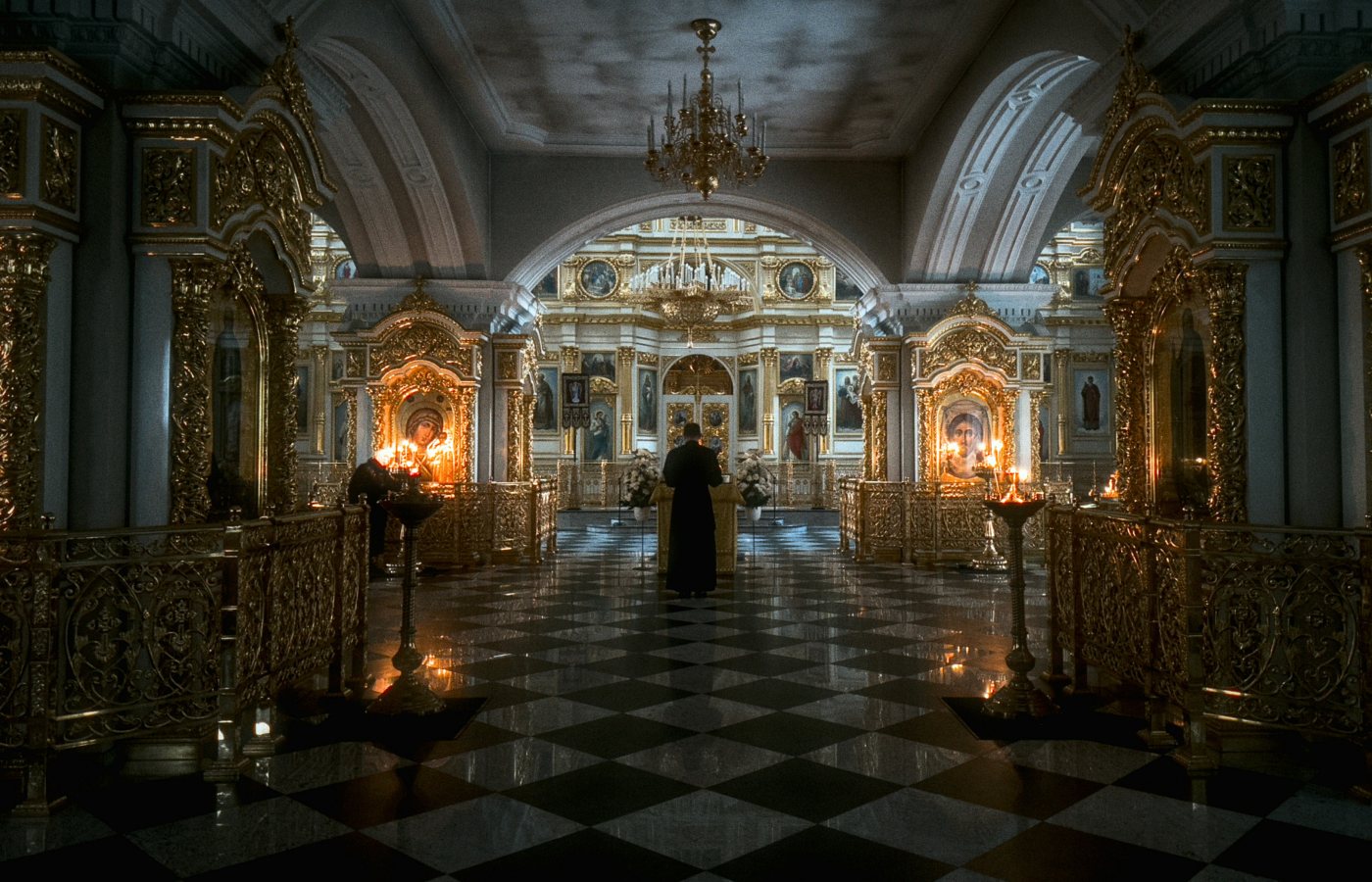

 Alicja Lenczewska
Alicja Lenczewska

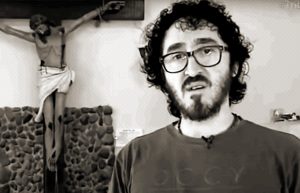
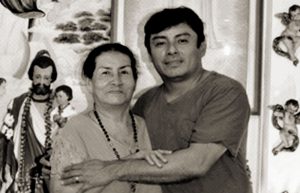
 Elizabeth Kindelmann
Elizabeth Kindelmann Through what became The Spiritual Diary, Jesus and Mary taught Elizabeth, and they continue to instruct the faithful in the divine art of suffering for the salvation of souls. Tasks are assigned for each day of the week, which involve prayer, fasting, and night vigils, with beautiful promises attached to them, laced with special graces for priests and the souls in purgatory. In their messages, Jesus and Mary say that The Flame of Love of the Immaculate Heart of Mary is the greatest grace given to mankind since the Incarnation. And in the not-so-distant future, her flame will engulf the entire world.
Through what became The Spiritual Diary, Jesus and Mary taught Elizabeth, and they continue to instruct the faithful in the divine art of suffering for the salvation of souls. Tasks are assigned for each day of the week, which involve prayer, fasting, and night vigils, with beautiful promises attached to them, laced with special graces for priests and the souls in purgatory. In their messages, Jesus and Mary say that The Flame of Love of the Immaculate Heart of Mary is the greatest grace given to mankind since the Incarnation. And in the not-so-distant future, her flame will engulf the entire world. Father Stefano Gobbi
Father Stefano Gobbi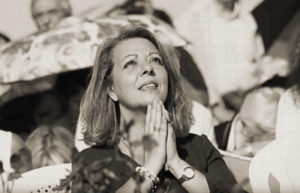 Why Gisella Cardia?
Why Gisella Cardia? Thirdly, the messages have frequently been accompanied by visible phenomena, photographic evidence found in In Cammino con Maria, which cannot be the fruit of subjective imagination, notably the presence of the stigmata on Giselle’s body and and the appearance of crosses or religious texts in blood on Gisella’s arms. See the pictures taken from her apparition website
Thirdly, the messages have frequently been accompanied by visible phenomena, photographic evidence found in In Cammino con Maria, which cannot be the fruit of subjective imagination, notably the presence of the stigmata on Giselle’s body and and the appearance of crosses or religious texts in blood on Gisella’s arms. See the pictures taken from her apparition website 
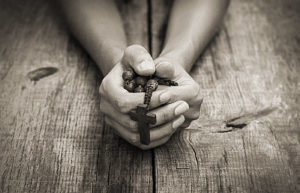 Jennifer
Jennifer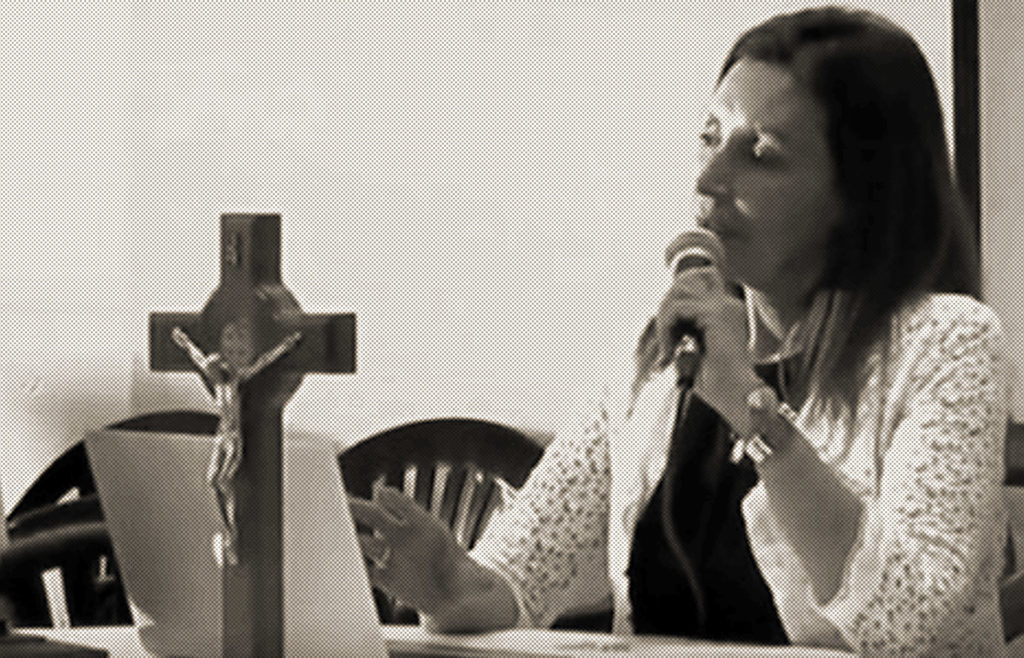
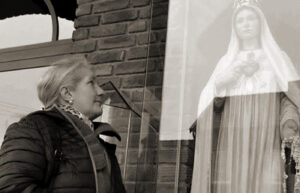 Why Manuela Strack?
Why Manuela Strack?
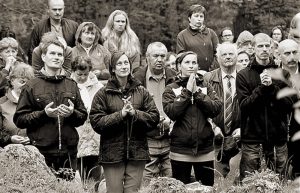
 Why the Visionaries of Our Lady of Medjugorje?
Why the Visionaries of Our Lady of Medjugorje? Why Pedro Regis?
Why Pedro Regis?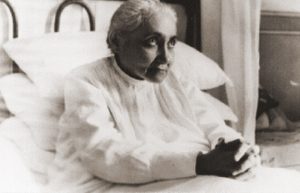 Why the Servant of God Luisa Piccarreta?
Why the Servant of God Luisa Piccarreta? of the saints. It wasn’t until she became a “Daughter of Mary” that the nightmares finally ceased at the age of eleven. In the following year, Jesus began to speak interiorly to her especially after receiving Holy Communion. When she was thirteen, He appeared to her in a vision that she witnessed from the balcony of her home. There, in the street below, she saw a crowd and armed soldiers leading three prisoners; she recognized Jesus as one of them. When He arrived beneath her balcony, He raised his head and cried out: “Soul, help Me!” Deeply moved, Luisa offered herself from that day on as a victim soul in expiation for the sins of mankind.
of the saints. It wasn’t until she became a “Daughter of Mary” that the nightmares finally ceased at the age of eleven. In the following year, Jesus began to speak interiorly to her especially after receiving Holy Communion. When she was thirteen, He appeared to her in a vision that she witnessed from the balcony of her home. There, in the street below, she saw a crowd and armed soldiers leading three prisoners; she recognized Jesus as one of them. When He arrived beneath her balcony, He raised his head and cried out: “Soul, help Me!” Deeply moved, Luisa offered herself from that day on as a victim soul in expiation for the sins of mankind. immobile, rigid-like state that appeared almost as if she were dead. It was only when a priest made the sign of the Cross over her body that Luisa regained her faculties. This remarkable mystical state persisted until her death in 1947—followed by a funeral that was no little affair. During that period in her life, she suffered no physical illness (until she succumbed to pneumonia at the end) and she never experienced bedsores, despite being confined to her little bed for sixty-four years.
immobile, rigid-like state that appeared almost as if she were dead. It was only when a priest made the sign of the Cross over her body that Luisa regained her faculties. This remarkable mystical state persisted until her death in 1947—followed by a funeral that was no little affair. During that period in her life, she suffered no physical illness (until she succumbed to pneumonia at the end) and she never experienced bedsores, despite being confined to her little bed for sixty-four years. Why Simona and Angela?
Why Simona and Angela?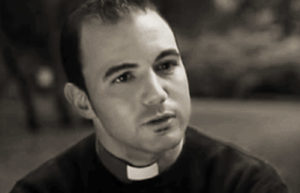
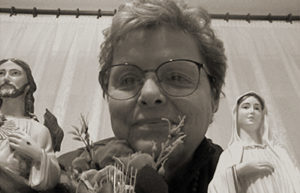 Valeria Copponi
Valeria Copponi